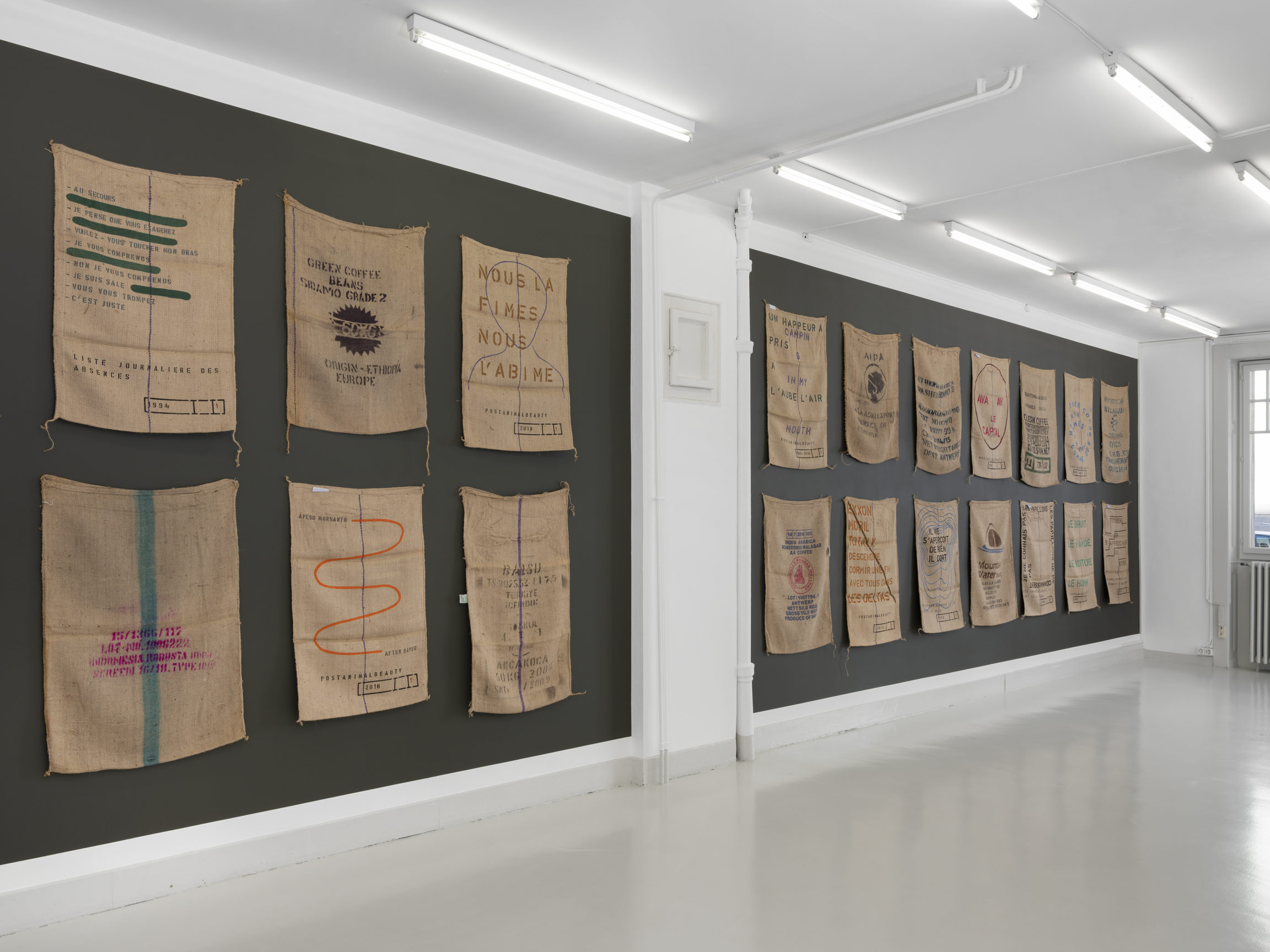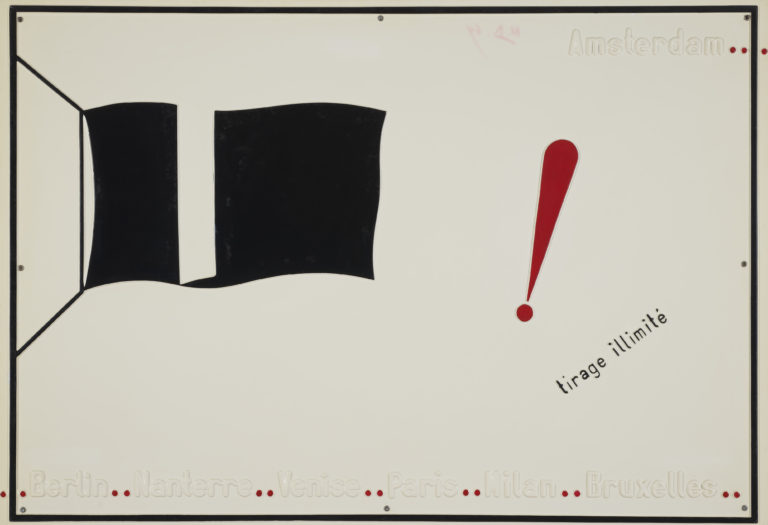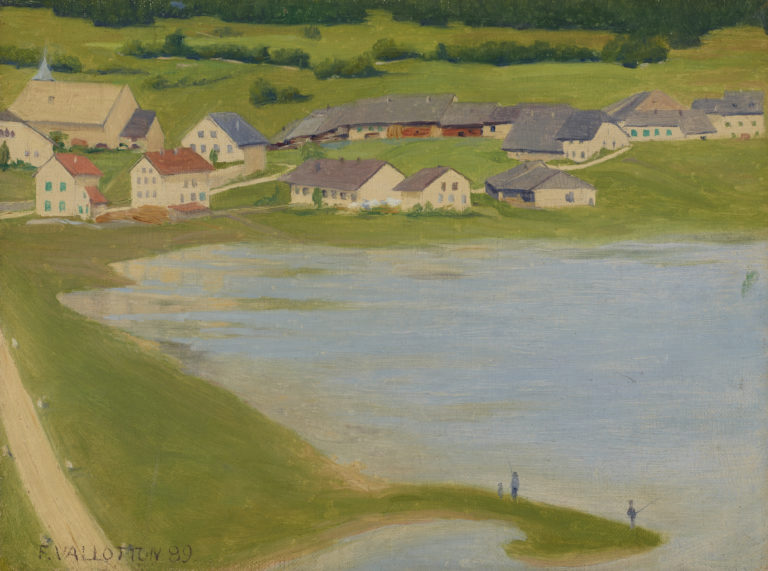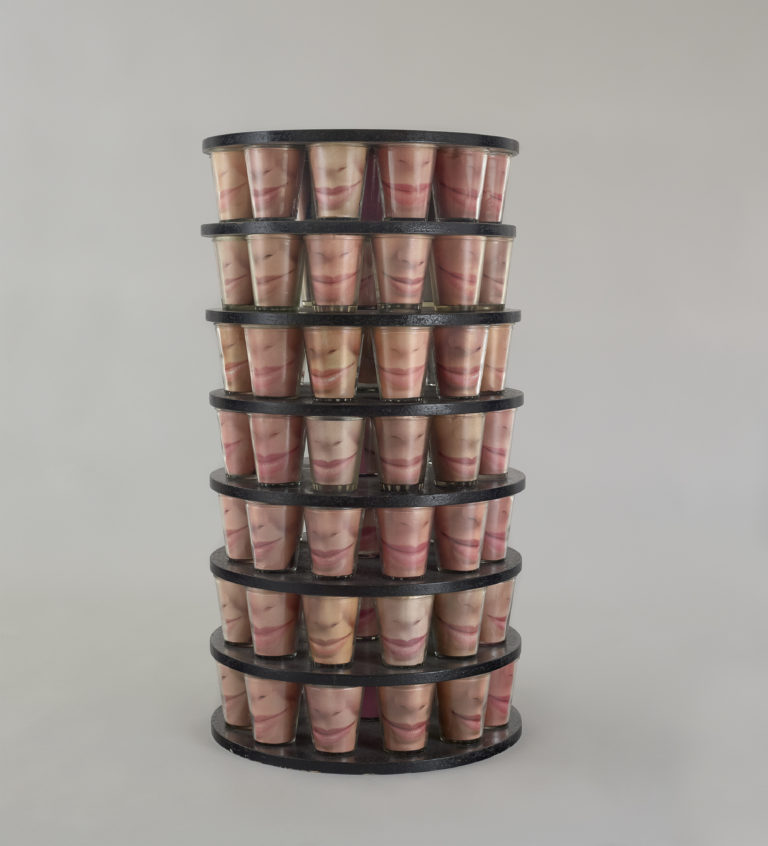Bibliography
Alain Huck, ‘Pause,’ notes written by the artist on the occasion of the exhibition Alain Huck. Under the Volcano, Geneva, Skopia Gallery, 2020.
David Lemaire, Alain Huck. La symétrie du saule, Geneva, Musée d’art moderne et contemporain, 2015.




Alain Huck explored a number of creative paths before settling on drawing in the early 1990s, choosing the medium for the fragility it brought to images that were often deeply brutal in nature, echoing the human condition. He is also interested in language, using words as elements in his compositions: when read, they change the stakes of the image completely.
The installation Pause consists of 22 coffee sacks symbolising global trade. Some of the hessian sacks were produced in Bengal, bought plain and decorated by the artist with texts from previous works together with the title of the series they came from, for instance ‘Post Animal Beauty’. Some just carry simple drawings with the date of the work cited and number of the edition (in this case, ‘1’) in a cartouche. The other sacks originated in Ethiopia, Indonesia, Mexico, Guatemala, and Nicaragua and travelled round the world as part of the coffee trade. These sacks were printed by the producers with their logo, country of origin, reference number, etc.
The installation explores broad themes including the worldwide trade in commodities, extraction of natural resources, western imperialism, and relationships between societies across the globe. The stencilled inscriptions are a stark reminder of the violence inherent in global trade: the words ‘Tuer comme des bêtes manger comme des hommes’ (Kill like animals eat like men) twisted in a double helix point to our relationship with the animal kingdom, while the sentence ‘Il ne s’aperçoit de rien il dort’ (He notices nothing he sleeps) evokes both a lack of transparency and the way we close our eyes to the reality of trade. In 2020, the artist himself commented, ‘These texts are the raw material underpinning my work, which will feed into it for as long as cats eat birds’.